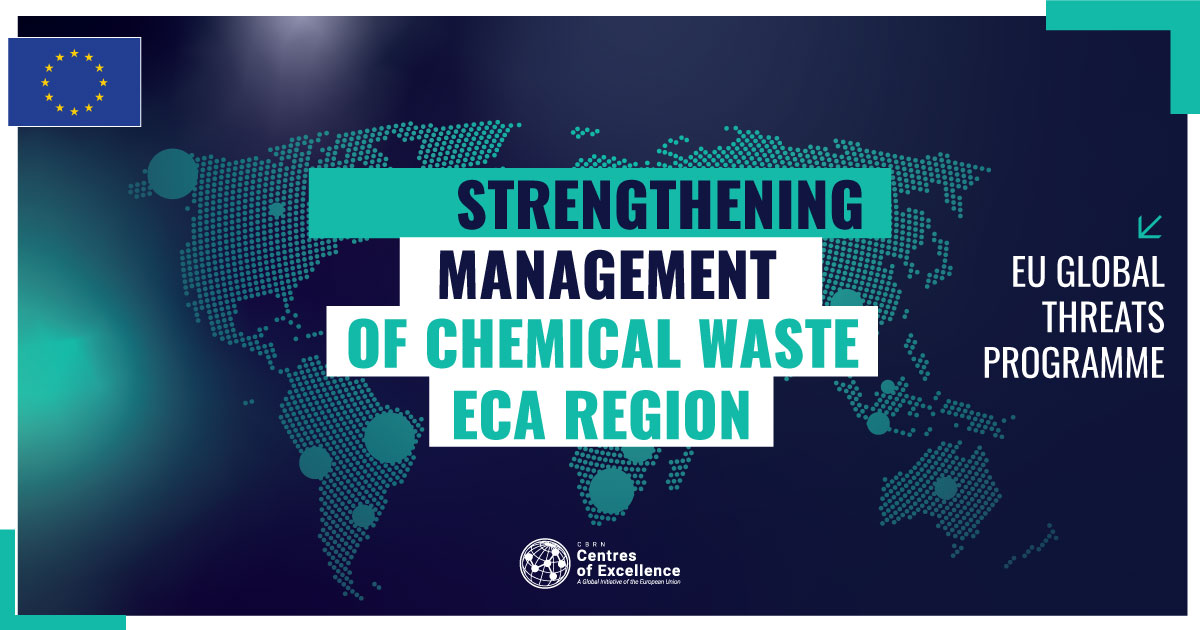
Context
The Eastern and Central African (ECA) region faces persistent challenges in the management of chemicals and related waste. Despite earlier initiatives, including a regional project proposed in 2016 and postponed during COVID-19, countries continue to report growing concerns about hazardous waste accumulation. Chemicals play a vital role in agriculture, health, mining, industry, and other sectors, but poor end-of-life management has led to significant environmental and public health risks. Hazardous substances, such as pesticides, fertilisers, persistent organic pollutants, and heavy metals are widely used, with limited safeguards for safe storage, transport, and disposal.
Weak enforcement, illegal dumping, and limited regional coordination further exacerbate the problem. Sound chemical waste management is therefore essential to sustainable development, environmental protection, and the well-being of communities across the region.
Overall objective
This project aims to initiate or further enhance best practices in chemical waste management in the Eastern and Central African region.
Specific objectives
Reduction of risks and threats emanating from improperly managed chemical waste, by addressing three core operational priorities:
- To develop common practices in the region for the management of chemical waste, according to international regulations, standards and recommendations, respecting the safety rules inherent in chemical products.
- To strengthen the capacity of the monitoring institutions of each partner country to detect suspect shipments of chemical waste and take appropriate action.
- To strengthen a regional dynamic, by maintaining regional training, meetings, exchanges and sharing of experiences including multidisciplinary regional trainings led by the project trainers.
Concrete activities
- Organisation of technical seminars and events to increase public and stakeholder awareness of the risks related to the mismanagement of chemical waste.
- Country-specific legal gap analyses, working groups, legislative modelling and structured policy dialogues.
- Definition of guidelines and procedures for interagency collaboration.
- Training and regional events, to strengthen technical capabilities of institutions and professionals engaged in the safe and secure management of chemical waste across the entire waste lifecycle.
- Delivery of emergency response workshops and elaboration of national emergency plans to enhance the technical and operational capacity of partner countries in managing the risks associated with the transport of dangerous goods (TDG).
Expected results
- Increased public and stakeholder awareness on sound chemical waste management and transport.
- Development for country adoption of comprehensive and effective legislation for safe and secure management and transport of chemical waste and consequently promotion by key national judicial stakeholders.
- Improved interagency collaboration at national level offering realistic and cost-effective solutions for dealing with chemical waste, enforcement of pollution laws and fines as well as improvement and reinforcement of security counter measures.
- Enhanced technical capacity for safer and more secure chemical waste management with respect to collection, prevention, re-using, recycling, recovery and disposal, within partner countries and across borders in the region.
- Enhanced technical capacity for the region's TDG systems with the aim of risk mitigation of accidents arising during transportation of chemicals and chemical waste.
- Enhanced capacity of institutions such as customs and security services to detect suspicious shipments containing chemical waste.
Expected achievements
- Support or hold 8 regional workshops, exercises, seminars and conferences, to increase regional cooperation of and with ECA countries. This includes a regional table-top exercise focused on illicit trafficking of chemical waste.
- Produce 11 tailored roadmaps for adoption and implementation of the necessary legislation and regulations on chemical waste management (one for each partner country).
- Draft and publish Handbook providing normative references to support lawmakers in regulatory development.
- Support or hold 11 national multi-agency coordination and SOP development workshops (one in each partner country).
- Support or hold 33 national training workshops (3 per country) per country on the globally harmonised system (GHS) and on the specific modules of the UN model regulations with respect to TDG as well as on on emergency response to TDG accidents, with a focus on risk mitigation.
- The project will support or hold 33national workshops (3 per country) dedicated to the elaboration and operationalisation of emergency response plans specific to transport-related chemical incidents.
- The project will support or hold 11 national trainings on inspection operations and sampling one in each partner country).
- Produce survey model for illegal hazardous waste trafficking.
- Project duration
- 1 Sep 2025 - 1 Feb 2029
- Project locations
- BurundiDemocratic Republic of the CongoEthiopiaGhanaKenyaMalawiRwandaSeychellesTanzaniaUgandaZambia
- Overall budget
- €34 999 725
- Threat area
- CBRN Risk Mitigation
